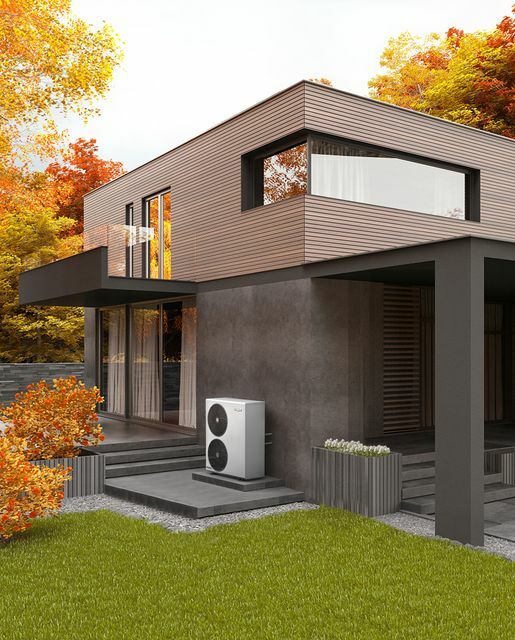Heatpumps are a popular source of heating and cooling in residential and commercial buildings due to their energy efficiency and versatility. In this article, we will explore the advantages and limitations of heat pumps to help you determine whether they are the right choice for your home or business.  heat pumps
heat pumps
Advantages of Heat Pumps
Energy Efficiency
Heatpumps are one of the most energy-efficient heating and cooling options available. This is because they transfer heat from one location to another, rather than generating heat like traditional HVAC systems. In heating mode, heat pumps extract heat from the air, ground, or water outside and transfer it indoors. In cooling mode, they reverse the process and transfer heat from inside to the outside. This process requires less energy than generating heat or cooling air, resulting in lower energy bills and a reduced carbon footprint.
Versatility
Heat pumps are a versatile heating and cooling option, as they can provide both functions in one system. This eliminates the need for separate heating and cooling systems, simplifying maintenance and reducing costs. Heat pumps can also be used for domestic hot water heating, further increasing their versatility.
Quiet and Unobtrusive
Heat pumps are typically quiet and unobtrusive. Unlike traditional HVAC systems that produce noise and combustion gases, heat pumps operate quietly and do not emit harmful gases. This makes them a good option for homes and businesses located in noise-sensitive areas.
Long Lifespan
Heat pumps typically have a longer lifespan than traditional HVAC systems. With proper maintenance, a heat pump can last up to 20 years, compared to the 10-15 year lifespan of traditional HVAC systems.
Low Maintenance
Heat pumps require less maintenance than traditional HVAC systems. This is because they have fewer moving parts and do not require regular filter changes. Heat pumps typically only require annual maintenance to ensure optimal performance and longevity.
Limitations of Heat Pumps
Temperature Limitations
Heat pumps are less effective in extreme temperatures. In very cold or very hot climates, heat pumps may require a backup heating or cooling system to maintain indoor comfort. In colder climates, the efficiency of air-source heat pumps decreases as the temperature drops, making them less effective below -15°C. Ground-source heat pumps are more effective in colder climates, but they are more expensive to install than air-source heat pumps.
Upfront Cost
Heat pumps have a higher upfront cost than traditional HVAC systems. This is because they require specialized installation, including excavation for ground-source heat pumps. However, the energy savings over the lifespan of a heat pump can offset this higher initial cost.
Space Requirements
Heat pumps require adequate space for installation. Air-source heat pumps require an outdoor unit, while ground-source heat pumps require pipes buried underground. Water-source heat pumps require access to a nearby body of water. The space requirements for heat pumps should be considered during the planning and installation phases.
Regular Maintenance
While heat pumps require less maintenance than traditional HVAC systems, they still require regular maintenance to ensure optimal performance and longevity. Annual maintenance is recommended to keep the system operating efficiently.
Conclusion
Heat pumps offer several advantages over traditional heating and cooling systems, including energy efficiency, versatility, quiet operation, a long lifespan, and low maintenance. However, they also have limitations, such as temperature limitations, higher upfront costs, space requirements, and regular maintenance requirements. When considering a heat pump, it is important to weigh these advantages and limitations against your specific heating and cooling needs. Consulting with a licensed HVAC professional can help you determine whether a heat pump is the right choice for your home or business.  ashp heat pump
ashp heat pump


 heat pumps
heat pumps ashp heat pump
ashp heat pump